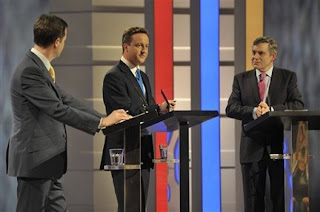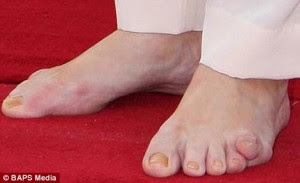We have been to Amsterdam a few times before in our lives, but we only "got" the city on our last visit a few days ago.
My first introduction to the town came right after university when a friend and I backpacked around Europe for three months. Amsterdam was one of our last stops and it was the only time I ever stayed in a youth hostel. It scarred me for life. Like Scarlett O'Hara swearing that she would never go hungry again, I swore never to stay in a place like that again. And I haven't. That experience, though, colored how I felt about the city. Until now.
If I lived in Amsterdam, the first thing I would do is get a bike.
There are 750,000 people in the city and 600,000 bicycles. To discourage thieves, the bikes are well worn and plain. People steer the high handlebars sitting erect. Sometimes they attach wagons in front for their children. Kids are also carried in seats behind or in front of the cycler. We even saw a few strapped into infant slings. Friends ride side saddle on the back. No one wears helmets. On most streets the city is hushed, despite the presence of (a few) cars. The soft sound of methodical pedaling over cobble stoned streets is a memory I took away, along with the image of two friends riding side by side, carrying on a leisurely conversation.
The second thing I would do if I lived there is get a pair of stilts.
The Dutch are a robust and ruddy people. They are also tall. I've read they are the tallest in the world, with an average height of six feet for men and women. A question: With only the little country of Belgium between them, why are the Dutch so tall and the French so small?
John, who gets his height from Dutch ancestors, wryly offered a Darwinian explanation. Historically, when the dams burst and the sea flooded in, the likeliest survivors were those who could keep their heads above water.
They seem to be a practical and tolerant people, as evidenced in the following behavior:
1) Recognizing that the oldest profession will always have clients, they legalized prostitution. Those engaged in the trade even have their own union. They get mandatory medical check-ups four times a year. The police don't waste time setting up sting operations to arrest them or their customers.
2) Smoking cannabis is not illegal if done in a designated "coffeeshop." The tolerant Dutch think it is less harmful than drinking, and not as likely to lead to violent behavior. If one were so inclined, s/he could stop by a "coffeeshop" on the way to dinner and puff on things with names like "power plant," "amnesia haze," and "train wreck." On the other hand, ordinary smoking is forbidden in bars, restaurants, and the like. It's bad for your health.
3) If you are terminally ill, in great pain, and wish to end your life, euthanasia is allowed after a set of guidelines are followed.
4) Homosexuality is completely accepted. In our former diplomatic life, John's counterpart from the Netherlands lived openly with his partner. There is even a Homomonument in the city, made up of three large pink granite triangles. During their occupation of the country in World War II, the Nazis made gays wear a pink triangle.
I've read that the Dutch have reached their tolerance level when it comes to immigration, though. Like most countries in Europe, and certainly in the United States, this is a big issue.
However, on a long and (unusual) sunny weekend it was pleasant to roam the streets of Amsterdam looking at the narrow and ancient houses, eating apple pancakes, sitting outside on the terrace of Cafe Americain, cruising slowly through the canals, and NOT staying in a youth hostel. It all added up to a real Dutch treat.
My first introduction to the town came right after university when a friend and I backpacked around Europe for three months. Amsterdam was one of our last stops and it was the only time I ever stayed in a youth hostel. It scarred me for life. Like Scarlett O'Hara swearing that she would never go hungry again, I swore never to stay in a place like that again. And I haven't. That experience, though, colored how I felt about the city. Until now.
If I lived in Amsterdam, the first thing I would do is get a bike.
There are 750,000 people in the city and 600,000 bicycles. To discourage thieves, the bikes are well worn and plain. People steer the high handlebars sitting erect. Sometimes they attach wagons in front for their children. Kids are also carried in seats behind or in front of the cycler. We even saw a few strapped into infant slings. Friends ride side saddle on the back. No one wears helmets. On most streets the city is hushed, despite the presence of (a few) cars. The soft sound of methodical pedaling over cobble stoned streets is a memory I took away, along with the image of two friends riding side by side, carrying on a leisurely conversation.
The second thing I would do if I lived there is get a pair of stilts.
The Dutch are a robust and ruddy people. They are also tall. I've read they are the tallest in the world, with an average height of six feet for men and women. A question: With only the little country of Belgium between them, why are the Dutch so tall and the French so small?
John, who gets his height from Dutch ancestors, wryly offered a Darwinian explanation. Historically, when the dams burst and the sea flooded in, the likeliest survivors were those who could keep their heads above water.
They seem to be a practical and tolerant people, as evidenced in the following behavior:
1) Recognizing that the oldest profession will always have clients, they legalized prostitution. Those engaged in the trade even have their own union. They get mandatory medical check-ups four times a year. The police don't waste time setting up sting operations to arrest them or their customers.
2) Smoking cannabis is not illegal if done in a designated "coffeeshop." The tolerant Dutch think it is less harmful than drinking, and not as likely to lead to violent behavior. If one were so inclined, s/he could stop by a "coffeeshop" on the way to dinner and puff on things with names like "power plant," "amnesia haze," and "train wreck." On the other hand, ordinary smoking is forbidden in bars, restaurants, and the like. It's bad for your health.
3) If you are terminally ill, in great pain, and wish to end your life, euthanasia is allowed after a set of guidelines are followed.
4) Homosexuality is completely accepted. In our former diplomatic life, John's counterpart from the Netherlands lived openly with his partner. There is even a Homomonument in the city, made up of three large pink granite triangles. During their occupation of the country in World War II, the Nazis made gays wear a pink triangle.
I've read that the Dutch have reached their tolerance level when it comes to immigration, though. Like most countries in Europe, and certainly in the United States, this is a big issue.
However, on a long and (unusual) sunny weekend it was pleasant to roam the streets of Amsterdam looking at the narrow and ancient houses, eating apple pancakes, sitting outside on the terrace of Cafe Americain, cruising slowly through the canals, and NOT staying in a youth hostel. It all added up to a real Dutch treat.


